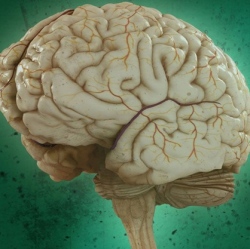
Women’s brains might be more vulnerable to the degenerative effects of Alzheimer’s disease than men’s, causing them to decline in memory and cognitive function twice as fast, according to research that could explain why women make up two-thirds of diagnosed Alzheimer’s cases in the US.
The finding was presented this week at the 2015 Alzheimer’s Association International Conference (AAIC) in Washington, DC, with the team also noting that women tend to decline more dramatically than men in cognition, function, and brain size after they’ve been in surgery or under general anaesthesia.
"Women are disproportionately affected by Alzheimer’s, and there is an urgent need to understand if differences in brain structure, disease progression, and biological characteristics contribute to higher prevalence and rates of cognitive decline," Maria Carrillo, the chief scientific officer at the US Alzheimer’s Association, said in a press release. "To intervene and help reduce the risk of Alzheimer’s, it’s critical to understand the reasons for these differences."
According to the Alzheimer’s Disease Facts and Figures report, published by the Alzheimer’s Association, of all Americans aged 71 and older, 16 percent of women have Alzheimer’s and other dementias, while just 11 percent of men are similarly affected. If a woman manages to avoid Alzheimer’s by the age of 65, she’ll have a one in six chance of developing it during the remainder of her life, compared to the one in 11 chance for men, and once women hit their 60s, they’ll be twice as likely to develop Alzheimer’s disease as they are to develop breast cancer.
So why are women so uniquely affected by this devastating condition? It’s not yet clear, but the researchers said it’s not just to do with the fact that women are more likely to outlive men in every country on the planet. "There’s something else going on in terms of the biology [or] the environment for women," one of the team, Kristine Yaffe from the University of California, San Francisco, told Jon Hamilton at NPR.
One study presented at the conference was based on data from an ongoing project called the Alzheimer’s Disease Neuroimaging Initiative. Yaffe and her colleagues investigated how the cognitive abilities of about 400 people (141 women, 257 men), mostly in their mid-seventies, with mild cognitive impairment – a condition that leads to Alzheimer’s disease – changed over the course of up to eight years.
"We found that women decline at almost twice the rate of men and we also found that women have faster acceleration of decline over time," one of the team, Katherine Amy Lin from Duke University Medical Centre in the US, told NPR.
